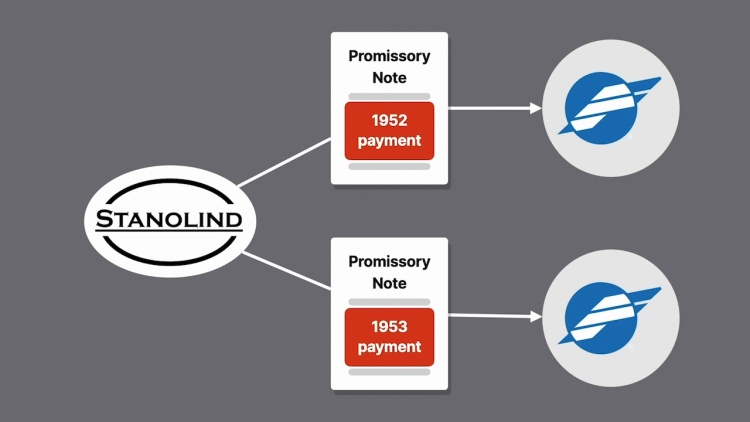Cowden v. Commissioner
United States Court of Appeals for the Fifth Circuit
289 F.2d 20 (1961)

- Written by Sara Rhee, JD
Facts
In 1951, Frank Cowden (plaintiff) and his family leased oil, gas, and mineral rights to Stanolind Oil and Gas Company (Stanolind). Stanolind also agreed to pay a bonus fee of $511,192.50. Although Stanolind was able and willing to pay the bonus in full in 1951, the Cowdens arranged to receive the sum in yearly installments. Stanolind was to pay $10,223.85 immediately, $250,484.31 in 1952, and $250,484.34 in 1953. Stanolind issued promissory notes for the delayed payments. On November 30, 1951, the Cowdens assigned their right to the 1952 payment to a bank at a nominal discount. About a year later, the Cowdens assigned their right to the 1953 payment to the same bank at a nominal discount. The Cowdens reported the income received from these assignments as long-term capital gains at the time they made each assignment. The Commissioner (defendant) determined that the Cowdens should have reported the entire fair market value of the bonus in 1951, when Stanolind incurred the payment obligation. The Commissioner calculated the fair market value to be $487,647.46 and accordingly required the Cowdens to report that amount as ordinary income in 1951. The Tax Court similarly required the Cowdens to include the fair market value of the bonus fee in their gross income for 1951. Finding the fair market value to be equal to the face value of the agreements, the Tax Court held that $511,192.50 was taxable income to the Cowdens in 1951. The Tax Court primarily based its holding on the fact that Stanolind was able and willing to pay the entire amount in 1951 but paid the amount in installments solely because the Cowdens wished to minimize their tax liability.
Rule of Law
Issue
Holding and Reasoning (Jones, J.)
What to do next…
Here's why 907,000 law students have relied on our case briefs:
- Written by law professors and practitioners, not other law students. 47,100 briefs, keyed to 996 casebooks. Top-notch customer support.
- The right amount of information, includes the facts, issues, rule of law, holding and reasoning, and any concurrences and dissents.
- Access in your classes, works on your mobile and tablet. Massive library of related video lessons and high quality multiple-choice questions.
- Easy to use, uniform format for every case brief. Written in plain English, not in legalese. Our briefs summarize and simplify; they don’t just repeat the court’s language.





